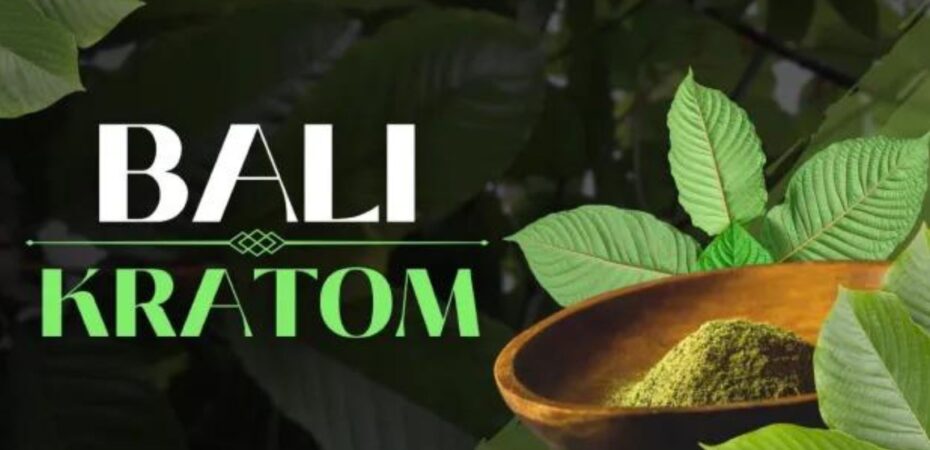Kratom, a tropical tree native to Southeast Asia, has gained significant attention for its potential benefits, including pain relief and mood enhancement. Bali Kratom stands out among the various strains available for its distinctive effects and popularity.
However, ethical sourcing practices become paramount as demand for this natural product grows. Ethical sourcing ensures the sustainability of kratom cultivation while safeguarding the well-being of the farmers and the environment. This article delves into the principles of ethical sourcing of Bali Kratom, highlighting the practices that ensure quality and sustainability.
Understanding Bali Kratom
Bali Kratom, derived from the Mitragyna speciosa tree, is named after the Indonesian island of Bali but is cultivated in various regions of Indonesia. This strain is renowned for its potent effects, ranging from stimulating at low to sedative at higher doses. The unique alkaloid profile of Bali Kratom, including mitragynine and 7-hydroxy mitragynine, contributes to its sought-after properties.
- Geographic Significance: The climate and soil composition of the Indonesian archipelago play a crucial role in the distinctive qualities of Bali Kratom. These environmental factors influence the concentration of active alkaloids in the leaves, affecting the strain’s efficacy.
- Harvesting Practices: Traditional harvesting methods, where leaves are handpicked at optimal maturity, ensure the highest quality of Bali Kratom. This selective harvesting contributes to the strain’s superior effects and promotes the kratom trees’ health and longevity.
Principles of Ethical Sourcing
Ethical sourcing of Bali Kratom encompasses a range of practices aimed at achieving sustainability and fairness throughout the supply chain. These principles ensure that the production and distribution of kratom do not harm the environment or exploit the labor force.
- Sustainable Farming Practices: Ethical sourcing advocates for agricultural methods that maintain the ecological balance. This includes crop rotation, organic farming, and avoiding harmful pesticides and fertilizers, which preserve the soil’s fertility and biodiversity.

- Fair Compensation and Labor Rights: Ensuring kratom farmers and harvesters receive fair wages and work under safe conditions is a cornerstone of ethical sourcing. This approach fosters community development and prevents exploitation, contributing to the overall well-being of the regions where Bali Kratom is cultivated.
Quality Assurance and Transparency
The commitment to ethical sourcing is intrinsically linked to Bali Kratom‘s quality assurance. By adhering to rigorous standards throughout the cultivation, harvesting, and processing stages, suppliers can guarantee a product that is effective and safe for consumers.
- Testing and Certification: Ethically sourced Bali Kratom undergoes extensive testing for contaminants, such as heavy metals, pesticides, and microbial organisms. Certification by independent third parties verifies that the kratom meets high-quality standards, providing consumers with confidence in the product’s purity and potency.
- Supply Chain Transparency: Transparency throughout the supply chain is essential for ethical sourcing. This includes clear information about the origin of the kratom, the conditions under which it was produced, and the practices employed in its cultivation and processing. Suppliers demonstrate their commitment to ethical standards and build trust with consumers by providing this level of detail.
Challenges and Solutions
Implementing ethical sourcing practices in the Bali Kratom industry presents several challenges, including regulatory hurdles, consumer education, and the cost implications of sustainable practices. However, solutions such as collaboration with local communities, investment in sustainable technologies, and developing industry-wide standards can help overcome these obstacles.
- Engagement with Local Communities: Building strong relationships with kratom farming communities ensures that ethical practices benefit all stakeholders. This includes providing education on sustainable agriculture, investing in community development projects, and supporting local livelihood initiatives.

- Consumer Awareness: Educating consumers about the importance of ethical sourcing and its impact on product quality and sustainability is crucial. Informed consumers are more likely to support brands prioritizing ethical practices, driving demand for responsibly sourced Bali Kratom.
Conclusion
The ethical sourcing of Bali Kratom is not merely a trend but a necessity for ensuring the long-term viability of the kratom industry.
Suppliers can provide a product that benefits both consumers and the environment by adhering to sustainability principles, fair labor practices, and quality assurance. As the industry continues to evolve, the commitment to ethical sourcing will remain a key factor in establishing trust and credibility among consumers, thereby securing Bali Kratom’s future in the global market.


 By
By 




